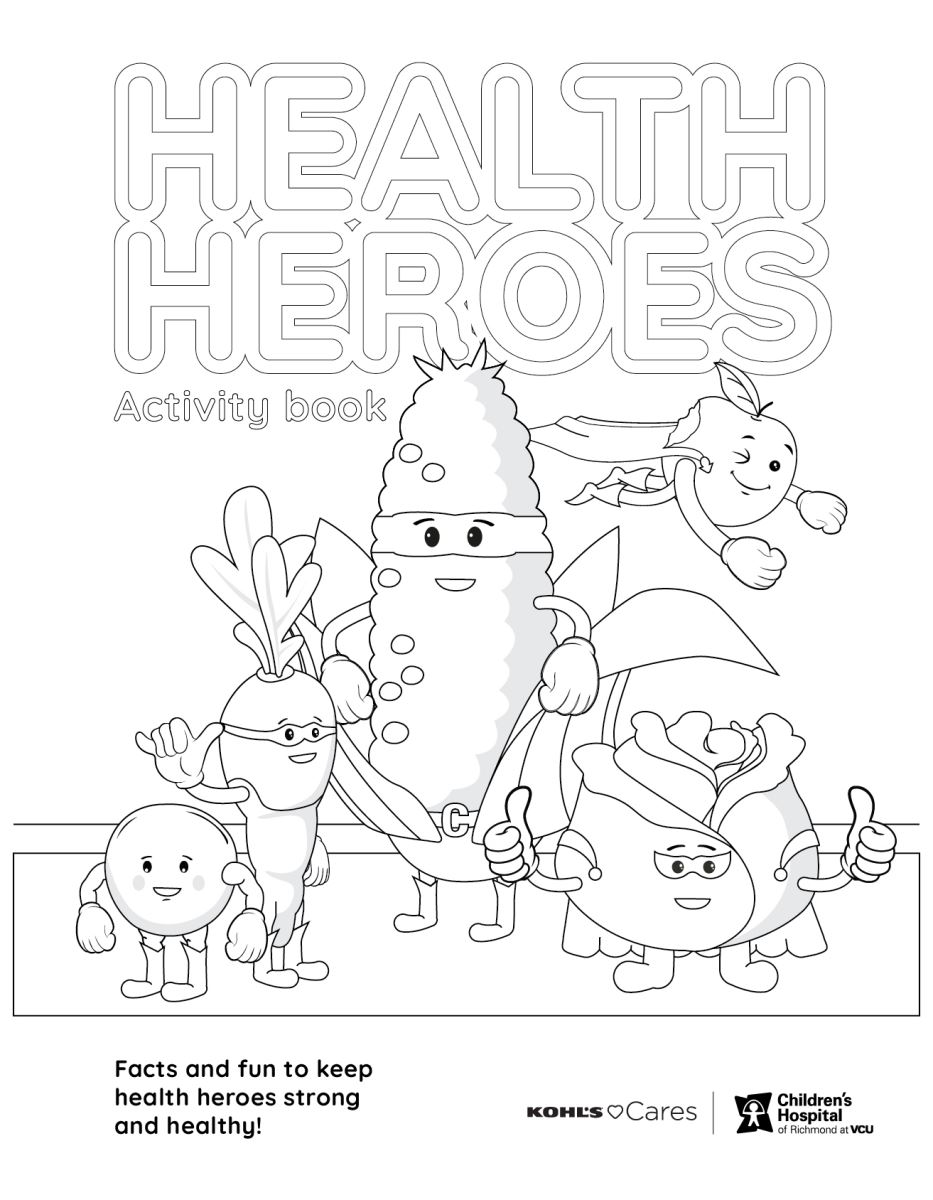Tips to develop healthy lifestyles
Developing healthy habits for kids: Let's get healthy together
Healthy eating habits and choices, regular physical activity, and adequate sleep are all important factors in keeping you and your family healthy.
Even small changes in these behaviors and habits add up to improve health and benefit everyone, regardless of age and body weight. From meal planning to exercise, sleep schedules to family routines - a little planning can go a long way in helping your family develop and maintain a healthy lifestyle.
We're here to help with a year-long series of education and events supported by Kohl's through their Kohl's Cares program.
Get your Health heroes activity book: Corny jokes and fun activities to encourage healthy habits
The Health Heroes activity book, developed by our Healthy Lifestyles Center, is packed with tips and tools to remind kids about nutritious food choices and daily practices to keep them feeling and functioning their best.
The book's 12 pages include:
- Funny fruit and veggie jokes - Who doesn't love a good knock-knock joke?
- Tips for getting active and encouraging power-packed food and beverage choices
- Word games to give the brain a workout
- Spaces for drawing and coloring
What are the recommended healthy habits for my child?
Not sure where to start? Pediatric health experts recommend following the 9-5-2-1-0 plan for kids' healthy bodies and minds.
9 - Get at least nine hours of sleep a day.
5 - Aim for five servings of fruits and vegetables every day.
2 - Limit recreational screen time to less than two hours a day.
1 - Get at least one hour of physical activity each day.
0 - Eliminate sugar-added beverages, including soda, sweet tea, sports drinks and juice.
Sleep: Get at least nine hours of sleep a day
Kids ages 5-12 need 9-12 hours of sleep, and teens need 8-10 hours of sleep. Getting adequate sleep helps their brains and bodies recharge. Quality sleep is linked to healthier eating behaviors, better ability to manage stress and other emotions, better attention and concentration, and healthier weights.
Tips to promote quality sleep:
- Try to go to bed and wake up at about the same time every day, even on weekends.
- Follow a calming bedtime routine, like taking a warm bath or reading.
- Keep screens out of the room, and limit screens before bed.
- Avoid caffeine.
- Use the bed only for sleep (not homework) so it stays a calming place.
Eating habits: Aim for five servings of fruits and vegetables every day and eliminate sugar-added beverages
We know healthy eating is important, but sometimes it's easier said than done.
Tips for making healthy meals and snacks easier:
- Eat at predictable times and avoid skipping meals.
- Eat breakfast (even if it's quick) to get the day started off right and reduce the chance of an energy slump at school.
- If packing a lunch, do so the night before so mornings aren't so rushed.
- Eat dinners as a family whenever possible. This is a great family routine that has awesome benefits on physical and emotional health for kids.
- Pick a weekend day and plan meals for the week, considering all the other activities you have going on. Then grocery shop according to that meal plan. This helps make sure you have healthy foods available and reduces the likelihood of stopping for fast food on busy days. Meal planning and preparing more meals at home will also save you money!
- Consider also planning for snacks. Most kids need a snack after school. Have healthy snacks pre-portioned and at eye level, so they are easy to grab. This is especially important for older kids who might come home to an empty house.
Stay active: Get at least one hour of physical activity each day
It's recommended that kids get 60 minutes of exercise a day for heart health, concentration, stress reduction, better sleep and improved moods. Think about what fun activities your children can do to get moving and how you can model healthy activity.
This doesn't have to be structured sports. Consider riding bikes to the library, going on an adventure walk or playing tag. Evidence suggests that being active for even as little as five minutes at a time has health benefits. Every minute adds up.
Family routines are key to a healthy lifestyle
Kids (teens too!) thrive on routines. When things are more predictable, it helps everyone feel more organized and reduces stress. Try to eat healthy foods at predictable times, build activity into daily routines and encourage adequate sleep. When families work on making changes to health habits together, everyone is more successful.
Want more information about how to promote your child's health?
What are healthy eating habits for kids? How should I encourage my kids to exercise? How to teach your children healthy eating? All of these questions are common and we're here to help.
For more specific information about your child's health habits, talk to their primary health care provider. If you do not have a regular primary care provider for your child, we have general pediatric and adolescent medicine providers who can provide comprehensive health care.
If you are specifically concerned that your child is gaining too much weight, the team of pediatric specialists, psychologists, dietitians and exercise trainers at our Healthy Lifestyles Center can help.
Chips and sweets can't make you laugh.
Choose veggies instead.


Healthy family routines
Dr. Melanie Bean, psychologist and co-director of the Healthy Lifestyles Center, offers tips on establishing healthy family routines.


